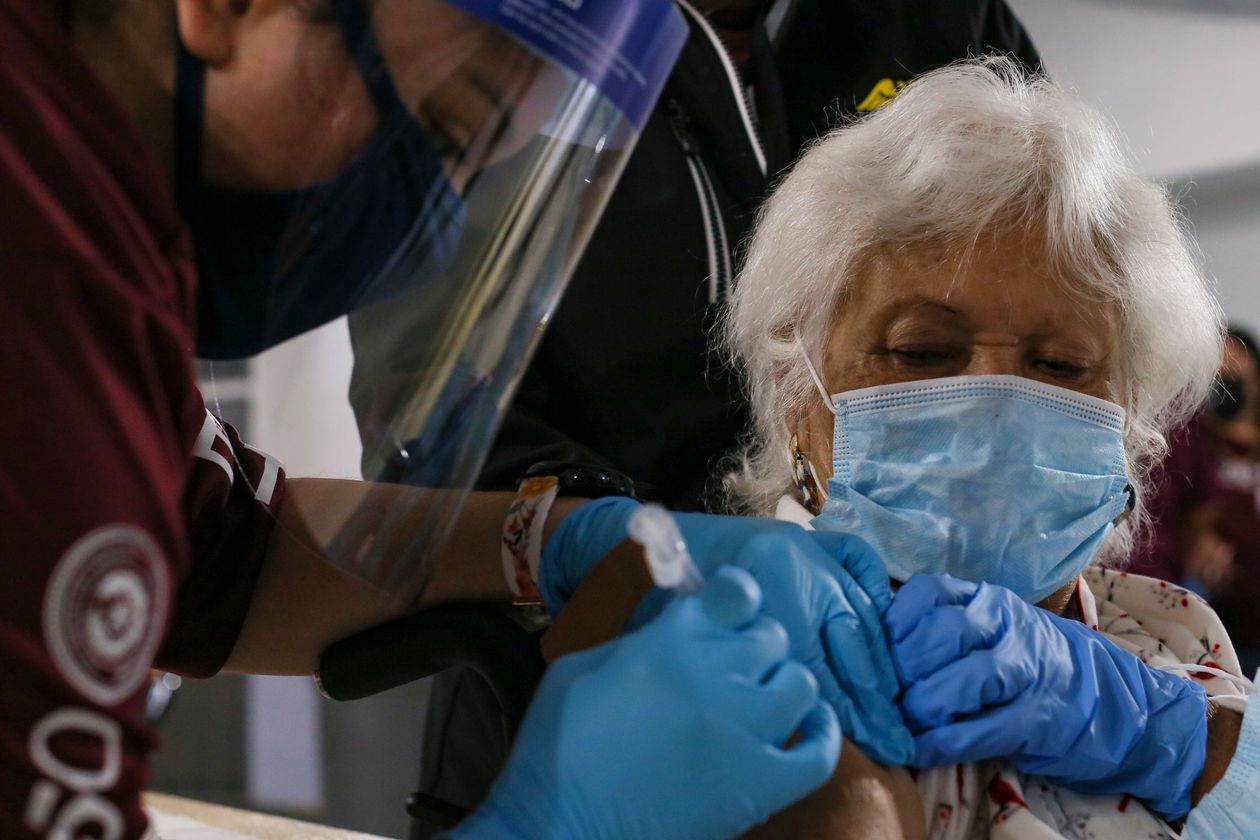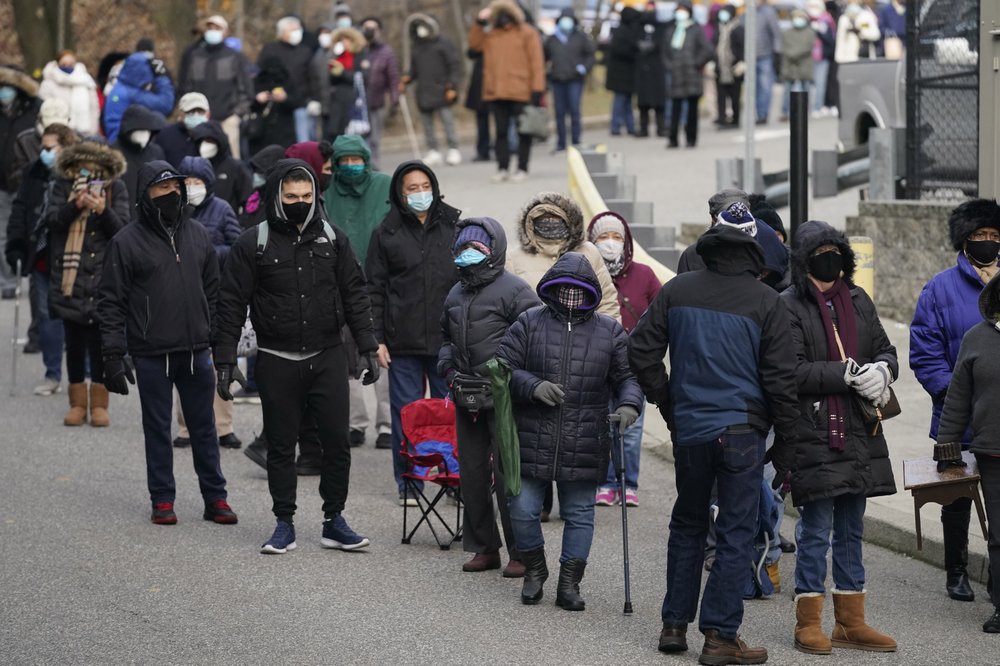
A woman gets a COVID-19 vaccine shot in Harlingen, Texas, U.S. /AP
A woman gets a COVID-19 vaccine shot in Harlingen, Texas, U.S. /AP
Editor's note: Bradley Blankenship is a Prague-based American journalist, political analyst and freelance reporter. The article reflects the author's opinions and not necessarily the views of CGTN.
Vaccine hesitancy is becoming an even more pronounced issue in public debate as some countries, like the United States, hit roadblocks with their COVID-19 vaccine drives as a result of it. It's becoming such a problem in that country that U.S. President Joe Biden on Wednesday announced several new efforts to reach his goal of getting 70 percent of American adults at least one dose of a COVID-19 vaccine by the July 4 Independence Day holiday.
Biden praised one plan by Anheuser-Busch to give a free beer to adults over the age of 21 if the goal is reached. "That's right: Get a shot, have a beer," Biden said. "We need everyone across the country to pull together to get us over the finish line," he said. "I promise we can do this."
The White House also announced several other initiatives including free childcare, extended Friday night hours at some pharmacies, a campaign to reach out to communities with low vaccination rates, a vaccination tour led by U.S. Vice President Kamala Harris and an initiative to work with barbershops and beauty salons with Black owners and clientele to encourage vaccination.
Of course, private businesses and local governments have also been pushing their own initiatives. When I was in the United States recently, I saw that the state of Ohio started a lottery of $1 million for any resident who received at least one dose of a COVID-19 vaccine, some restaurants were giving free food and I also saw my first Cincinnati Reds baseball game in seven years for only $10.
Other countries around the world that are catching up to the U.S. vaccine drive are almost certain to hit the same roadblocks. In fact, Europe faces a particular dilemma over this issue. The United States and Europe have mirrored each other at various points through the pandemic with trends in one often following nearly identically in the other.
Vaccine skepticism is undoubtedly going to be on the radar for European leaders this summer, but they might have it tougher since vaccine skepticism is actually higher in Europe than the United States.
A Thursday report by Xinhua News Agency highlights this issue clearly. Citing a survey published on May 10 by Eurofound, the European Foundation for the Improvement of Living and Working Conditions, it notes that over a quarter of adults in the European Union said they were "very unlikely" or "rather unlikely" to get vaccinated.

People wait in line for the COVID-19 vaccine in Paterson, New Jersey, U.S., January 21, 2021. /AP
People wait in line for the COVID-19 vaccine in Paterson, New Jersey, U.S., January 21, 2021. /AP
Minus Austria and France, there is also an east-west dynamic where eastern EU countries, which were particularly devastated by the later waves of COVID-19, are even more skeptical of vaccines.
Apathy toward vaccination is putting some countries at risk of falling behind EU vaccine drive goals at a time when tourism is just about to kick off once again, which obviously entails communities and households mixing far more than they had before.
While this could be owed to the fact that a significant amount of the population in these countries have natural immunity to COVID-19 because of a past infection (in the Czech Republic, this is officially about 15 percent of the population but probably much higher in reality), doubts about the efficacy and potential side effects are still prevalent and people seem to be foregoing them out of these concerns.
Already some countries are allowing tourists to enter after they've waited three weeks since their first dose of a two-dose vaccine, which is a great incentive to get the jab and makes travel plausible when the previous definition of "fully vaccinated" took at least a minimum of five or six weeks with the Pfizer or Moderna jabs respectively, but this also raises questions about how effective only partial vaccination is – especially when dealing with variants.
As countries around the world increase their vaccine supplies and catch up to the U.S. vaccine drive, they should pay close attention to the situation there and see what works and what doesn't in terms of curtailing vaccine skepticism. The situation in the U.S., which has been hoarding vaccines since their rollout, proves that it's not enough to simply have vaccine supply – you also have to have the demand.
(If you want to contribute and have specific expertise, please contact us at opinions@cgtn.com.)

